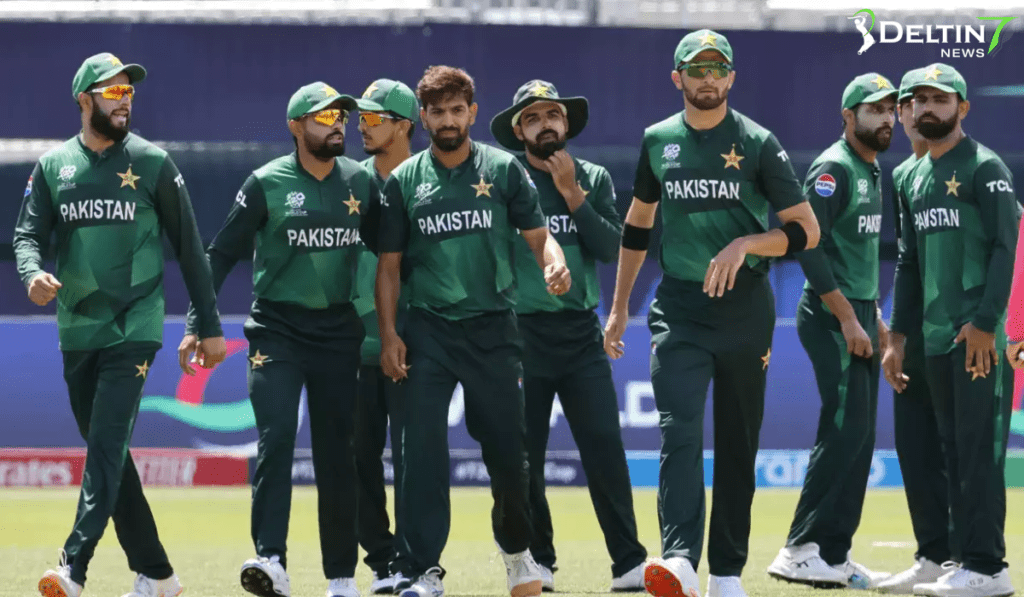
“Pehle se lekar paanchwi tak sab openers hi khel rahe hai”The T20 World Cup was poorly planned by Pakistan, according to Inzamam-ul-Haq.
In a scathing critique, former Pakistan captain Inzamam-ul-Haq has lambasted the country’s cricket authorities for their questionable selection choices leading up to the recent T20 World Cup. Inzamam’s assessment paints a bleak picture of Pakistan’s team composition, highlighting the alarming lack of specialist middle-order batters and the concerning overreliance on opening batters throughout the lineup.
Inzamam’s Damning Verdict on Pakistan’s Squad Composition
Inzamam pulled no punches in his assessment, stating unequivocally that the manner in which the Pakistan squad was selected was completely unacceptable. He pointed out that from the opening slot all the way down to number five, the team was comprised entirely of opening batters, leaving a glaring void in the middle order.
“This is certainly not the way a team should be selected. From No. 1 to No. 5 all are openers. It is shameful that we cannot find middle order batters in Pakistan.”
Inzamam’s words underscore the urgent need for Pakistan to address this fundamental imbalance in their batting lineup, a problem that has seemingly plagued the team for some time.
The Lack of Specialist Middle-Order Batters
Inzamam’s critique delves deeper, highlighting the alarming lack of specialist middle-order batters in the Pakistan setup. He expressed his disappointment at the inability of the selectors to identify and groom talent in this crucial position, which he believes has been a long-standing issue for the national team.
“It is shameful that we cannot find middle order batters in Pakistan.”
This observation raises serious questions about the depth and diversity of Pakistan’s batting resources, and the effectiveness of their talent identification and development processes.
Underperforming Bowlers Escaping Accountability
Inzamam also addressed another concerning aspect of the Pakistan team’s composition – the presence of players who were selected as bowlers but failed to contribute significantly with the ball. While he refrained from naming specific individuals, Inzamam urged the Pakistan Cricket Board (PCB) to hold these non-performing players accountable and ensure they prove their mettle in domestic cricket before being considered for the national team.
“He urged the Pakistan Cricket Board (PCB) to strictly make the non-performers play domestic cricket and prove their mettle to get selected back into the team.”
This call for accountability and a more rigorous selection process underscores Inzamam’s belief that the issues plaguing the Pakistan team are deep-rooted and require a comprehensive overhaul.
The T20 World Cup Debacle: A Culmination of Deeper Problems
Inzamam argued that the team’s dismal performance at the T20 World Cup was not an isolated incident, but rather the culmination of a longer-term struggle. He pointed to the team’s struggles in the Asia Cup and other recent series, where individual brilliance from players like Babar Azam, Mohammad Rizwan, and Shaheen Afridi was the only bright spot, with the team failing to perform as a cohesive unit.
“This struggle is not limited to the T20 World Cup. They struggled in a similar manner in the Asia Cup as well. Asia Cup is done. ODI World Cup is done. Even in the 2-3 series after that Pakistan was never on top, never united.”
Inzamam’s assessment suggests that the problems plaguing the Pakistan team are deeply entrenched and require a comprehensive overhaul of the team’s composition, leadership, and overall strategy.
The Need for Structural Changes in Pakistan Cricket
Inzamam’s scathing critique of the Pakistan team’s selection and performance raises important questions about the need for structural changes within the country’s cricket ecosystem. His calls for accountability and a more rigorous talent identification and development process underscore the urgent need for the PCB to address these systemic issues.
The Importance of Middle-Order Batting Depth
Inzamam’s emphasis on the lack of specialist middle-order batters in the Pakistan team highlights the critical importance of this position in the modern game. Middle-order batters play a vital role in stabilizing the innings, building partnerships, and providing the necessary acceleration in the latter stages of the innings. The absence of such players can severely hamper a team’s ability to post competitive totals or chase down challenging targets.
The Impact of Individual Brilliance vs. Team Cohesion
Inzamam’s observation that the Pakistan team’s recent performances have been characterized by individual brilliance rather than collective excellence is a concerning trend. While the exploits of players like Babar Azam, Mohammad Rizwan, and Shaheen Afridi have been commendable, the inability of the team to perform as a cohesive unit has ultimately proven to be their downfall. This underscores the need for the team to develop a stronger sense of unity, communication, and shared responsibility.
The Challenges of Talent Identification and Development
Inzamam’s criticism of the PCB’s inability to identify and develop middle-order batting talent within Pakistan raises important questions about the country’s player development ecosystem. The lack of a robust domestic structure, adequate coaching resources, and a clear pathway for young cricketers to transition to the international stage can all contribute to this talent gap. Addressing these systemic issues will be crucial for Pakistan to address their middle-order woes and build a more balanced and competitive national team.
The Importance of Accountability and Meritocracy
Inzamam’s call for the PCB to hold underperforming players accountable and require them to prove their worth in domestic cricket before being considered for the national team is a testament to his belief in the importance of meritocracy. By ensuring that selection is based on consistent performance and not just reputation, the PCB can instill a culture of accountability and drive players to continuously improve their skills and contributions to the team.
The Path Forward for Pakistan Cricket
Inzamam’s scathing critique of Pakistan’s poor planning and selection for the T20 World Cup highlights the urgent need for a comprehensive overhaul of the country’s cricket ecosystem. From addressing the glaring imbalance in the batting lineup to fostering a culture of accountability and meritocracy, the PCB must take decisive action to address these deep-rooted issues and put Pakistan cricket on a path to sustainable success.
Conclusion
Inzamam-ul-Haq’s damning assessment of Pakistan’s squad composition and selection process for the T20 World Cup has shed light on the systemic problems plaguing the country’s cricket landscape. His calls for a more balanced team, the development of specialist middle-order batters, and a rigorous accountability system underscore the urgent need for the PCB to undertake a thorough review of its talent identification, player development, and team-building strategies. Only by addressing these fundamental issues can Pakistan hope to return to the pinnacle of international cricket and consistently challenge the world’s best teams.














